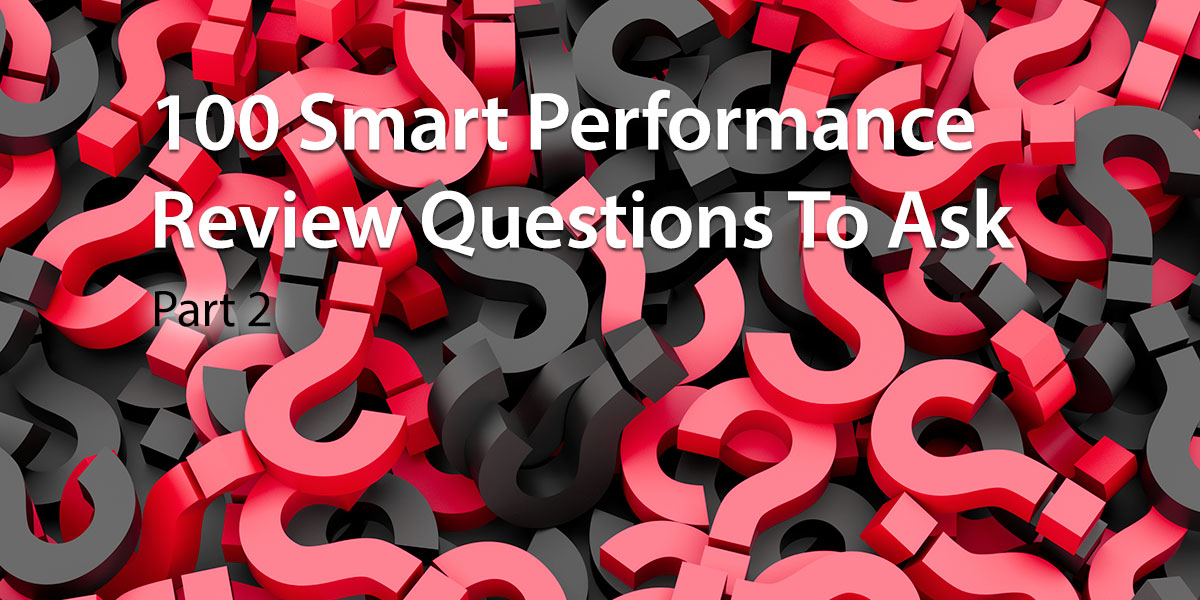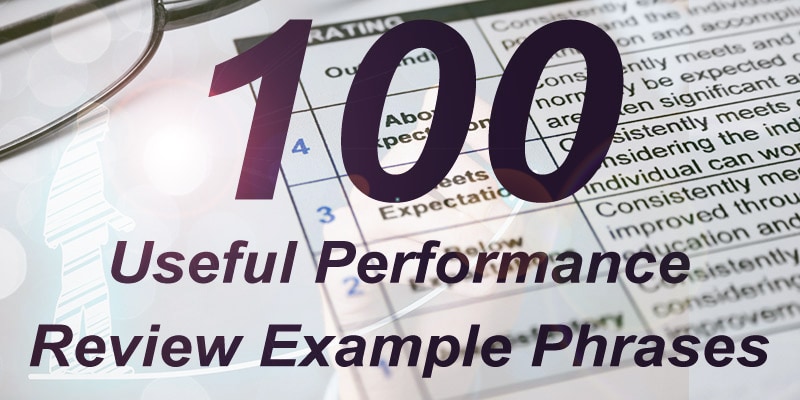When it comes to performance reviews, employees often breathe a sigh of relief when the painful discussion is all over. If that’s you, then you are not alone. Research from Gartner shows 59 percent of workers think appraisals have no impact on their performance. It’s even been reported that one in five workers would rather phone in sick than attend a performance review. But it doesn’t have to be like that. The secret to successful performance reviews is asking the right performance review questions.
Appraisals are an opportunity to have an in-depth discussion about your performance. You can also talk about your career ambitions and professional development needs. At the end of the process, you should have a clear roadmap of where you are heading and how to get there. And you could even end up with a promotion or a pay rise.
Last week we shared 65 performance review questions every manager should ask. And because appraisals are a two-way process, this week we focus on questions for employees. No matter your position, these questions will be helpful to employees at every level.
The questions are broken down into two sections. First are those questions you need to ask yourself to prepare for the performance review. The second section identifies questions to ask during the review itself so that you get the best outcome.
What Happens In A Performance Appraisal?
In some companies, performance reviews happen annually. And in others, they are more frequent, taking place twice a year or quarterly.
Performance reviews are one-on-one discussions between you and your manager. During the meeting, your boss will share their views on your strengths, accomplishments at work, and any areas for improvement. There are opportunities for you to discuss any concerns or issues affecting your work. And you can also have a conversation about training and development.
At the end of the review, your manager will share a record of the discussions, including personal goals and targets.
Your performance review should be a positive experience. It’s an opportunity to learn and develop. However, don’t just sit there and listen to the feedback from your manager. You will get much more out of the process if you take part in a constructive dialogue with your boss. For example, why not seize the initiative and do your own research into professional development opportunities? Perhaps there is an online course available to develop your technical skills. Your boss will be impressed that you have used your initiative and will find it harder to refuse.
Preparation is key to getting the best possible outcome. The following selection of performance review questions to ask yourself will help you prepare.
Questions To Ask Yourself In Preparation For Performance Appraisals
The boss will focus on your strengths, weaknesses, and areas to work on. Use these questions for some honest self-reflection to get in the right mindset.
- What successes at work am I most proud of?
- How well did I meet my goals and targets this year?
- What goals have I fallen short on, and why?
- In what areas has my performance been the strongest?
- What parts of the job do I enjoy the most?
- What aspects of my work are the least enjoyable, and why?
- With the benefit of hindsight, are there any things I would do differently, and why?
- What skills do I have that make me efficient and effective in my current role?
- What three areas would I like to develop my skills in over the next year?
- What do I want my next position in the company to be?
- What skills and knowledge do I need to develop to get there?
- What is the company value that I lived up to the most? What examples can I give to demonstrate how?
- What are my short and long-term career goals?
- Could management do more to support me in my work? If so, how?
- Moving forward, how could my manager help me to improve my performance?
Questions For Your Boss
You have done your homework and are in the right mindset. You have prepared yourself with plenty of practical examples to back up what you have to say. And you have thought about your goals and plans for the year.
Now the day has arrived for your performance review.
To get the most out of the discussion, listen carefully to what your manager says. However, you should also be an active participant. The best appraisals are two-way, constructive conversations. Be prepared for some honest feedback that may sometimes be hard to hear. However, done well, and the appraisal should be the right balance presented in a supportive, constructive way.
The following selection of questions will ensure you gain insights into your boss’s expectations. And they will help you jointly identify the most appropriate areas for improvement.
Questions Employees Should Ask During A Performance Review
- Has my performance met your expectations?
- How do you keep track of my progress?
- What do you think are my main strengths?
- And what are my weaknesses?
- How can I improve on those areas of weakness?
- What goals do I need to focus on next year?
- Am I directing my time and efforts on the right areas of the job?
- Are there any areas I should spend more time on?
- How can I contribute to the team’s success?
- What can I do to better support my co-workers?
- Are there any skills I need to work on to grow in the company?
- Is there any opportunity for growth within the business?
- What would make me a good candidate for a company promotion?
- What’s on the horizon for the company next year?
- What are the biggest challenges facing the business right now?
- What opportunities are there for me to grow my skills with professional development?
- What mentorship is available to help me better perform my role?
- Can we discuss my compensation?
- Is there any possibility of a pay raise?
- How can I help to make your job easier?
Employee Performance Reviews: Next Steps
The end of the discussion shouldn’t mean the end of the process. Your boss will give you a written record of the outcomes and your personal targets. Follow-up is crucial so that your appraisal isn’t just a tick-box exercise.
If your organization doesn’t have a formal process, make sure your appraisal is reviewed in your one-to-ones. That way, your boss is accountable for any commitments they make, including professional development. Plus, it’s an early-warning system. If problems or issues arise affecting your performance, you can seek your boss’s help to resolve them. And it also means there shouldn’t be any nasty surprises when it comes to your next annual appraisal.
Final Thoughts
Rather than anticipating your annual review with a sense of dread and foreboding, see it as an opportunity. After all, you have the boss’s undivided attention and can showcase all the great work you have been doing. Plus, it’s your chance to gain insights into your performance and gauge expectations that will help you improve. It’s also an opportunity to discuss your future and get guidance on what you need to do to realize those career dreams.
The employee performance review may not be the perfect tool. However, asking the right questions will ensure you continue growing professionally and developing your career. You may even get that promotion or pay rise!
Interested in finding out more? Check out our blog post on the Top 8 Performance Review Tips For Employees. Alongside our top tips is a handy downloadable performance review checklist to ensure you are fully prepared.
About MyHub Intranet Solutions
MyHub’s out-of-the-box intranets are designed by the experts with the non-expert in mind. Our cloud-based intranet solutions are used by businesses of all shapes and sizes worldwide. Improve team collaboration, communication, and employee engagement for more efficient and effective operations with a MyHub intranet.
Find out why independent reviewers are consistently rated highly with a free demo or 14-day trial.










0 Comments